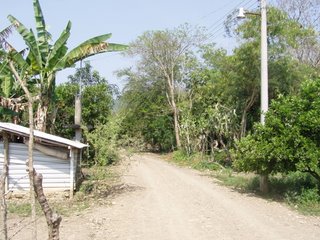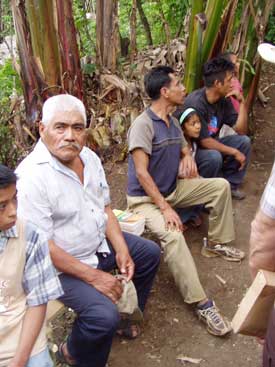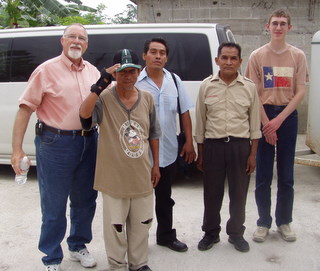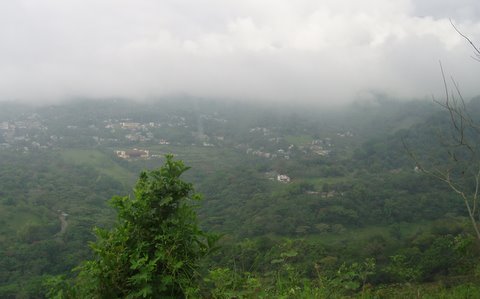 On Monday we travelled to La Soledad, a nice little town in the San Martín Chalchicuautla municipality (I won’t try to explain the pronunciation of this name). The name La Soledad, while not an Indian name, nevertheless has the interesting meaning of “The Lonely Place.” We, however, were by no means lonely as we were greeted by the brethren of the congregation there. Among others, we met Valentín Aquino, one of the preachers who is supported by the Aledo congregation.
On Monday we travelled to La Soledad, a nice little town in the San Martín Chalchicuautla municipality (I won’t try to explain the pronunciation of this name). The name La Soledad, while not an Indian name, nevertheless has the interesting meaning of “The Lonely Place.” We, however, were by no means lonely as we were greeted by the brethren of the congregation there. Among others, we met Valentín Aquino, one of the preachers who is supported by the Aledo congregation.
Upon arriving, I inquired of Mr. Hernández Félix as to whether the people of this place spoke Nahuatl, as I was not sure if we had perhaps come into Huastec country. He replied that these people were indeed Nahuatl speakers, and I soon found that they saw no reason to speak Spanish when their own tongue would suffice.
We also met Andrés Zuniga, a young man who is attending the preaching school in Huichihuayán, as well as Macario Zuniga, who I believe is in some way related to the former. They explained to us that many of the men of the congregation were not able to be there since they were off working, but we had a short worship service because the saints were assembled.
Andrés led the singing, and began with the Welcome Hymn (El Himno de Bienvenida), which I had never heard before. Jesús (our translator) gave a good lesson on the 103rd Psalm, and then brother Macario Zuniga got up and gave a summary of it in Nahuatl, for the benefit of those there who didn’t know Spanish. Read More


